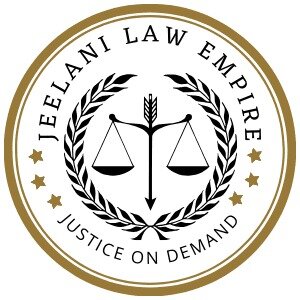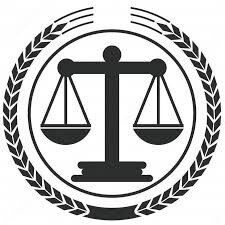Best Faith-Based Law Lawyers in Karachi
Share your needs with us, get contacted by law firms.
Free. Takes 2 min.
List of the best lawyers in Karachi, Pakistan
About Faith-Based Law in Karachi, Pakistan
Faith-Based Law in Karachi, Pakistan, primarily concerns the integration of religious principles within the legal framework. In Pakistan, where the majority of the population is Muslim, Islamic law is significantly intertwined with national law, particularly in personal status matters such as marriage, divorce, inheritance, and custody. Karachi, as a bustling metropolitan city, has diverse religious communities, which also practice their own faith-based legal traditions in personal matters alongside the dominant Islamic jurisprudence. The interplay of secular and religious laws requires careful navigation to ensure adherence to both legal systems.
Why You May Need a Lawyer
Engaging a lawyer within the field of Faith-Based Law can be essential for several reasons:
- Marriage and Divorce: Understanding the procedures and implications of Nikah (marriage) and Talaq (divorce) in compliance with Islamic principles.
- Inheritance Disputes: Distributing property according to Islamic guidelines or dealing with disputes arising from inheritance matters.
- Child Custody Issues: Navigating the complexities of custody rights and agreements within an Islamic context.
- Religious Discrimination: Addressing issues of religious discrimination in various spheres, including workplace and community.
- Interfaith Marriage: Legal complexities arising from marriages between partners of different faiths.
Local Laws Overview
Key aspects of local laws that interact with Faith-Based Law in Karachi include:
- Muslim Family Laws Ordinance, 1961: Governing personal law matters for Muslims, including marriage, divorce, and maintenance.
- Christian Marriage Act, 1872: Legislation relevant to family law among the Christian minority.
- The Hindu Marriage Act, 2017: Provides legal clarity on marriage, succession, and family law for Hindus.
- Jurisprudence of Shariah Courts: Interpretation of personal law issues under Islamic jurists' guidance.
- Constitution of Pakistan: Outlines the country's Islamic identity and guarantees freedoms that may affect religious practices.
Frequently Asked Questions
1. What is Faith-Based Law?
Faith-Based Law typically refers to the legal principles that are derived from religious teachings and are used to govern the personal matters of individuals belonging to particular faiths.
2. Is Shariah Law applicable to all residents of Karachi?
Shariah Law is primarily applicable to Muslims for personal law matters, but other religious communities follow their respective legal traditions for personal matters, such as marriage and inheritance.
3. Can a lawyer practice both secular and Faith-Based Law?
Yes, lawyers often practice in both fields, especially in jurisdictions like Pakistan, where the two can intersect in personal law matters.
4. How are inheritance disputes settled under Faith-Based Law?
Inheritance disputes are typically settled by adhering to the distribution principles mentioned in religious texts, with Islamic inheritance laws often being resolved according to Quranic instructions.
5. Are faith-based laws recognized by the Pakistani courts?
Yes, faith-based laws are recognized and applied by Pakistani courts, especially in matters related to marriage, divorce, and inheritance among respective communities.
6. What happens in case of interfaith marriages?
Interfaith marriages can face complexities under faith-based laws, and individuals may need legal guidance to ensure compliance with legal and religious stipulations.
7. Do other faiths have dedicated laws for family matters?
Yes, other faiths like Christianity and Hinduism have dedicated laws addressing family matters, such as the Christian Marriage Act and the Hindu Marriage Act.
8. How does one file for divorce under Islamic Law in Karachi?
Under Islamic Law, a divorce must be declared by the husband (Talaq) or initiated by the wife through legal petition (Khula) in a court. Consultation with a lawyer ensures the process adheres to both legal and religious requirements.
9. How important is a Nikah Nama?
A Nikah Nama is an essential legal document in a Muslim marriage, detailing the marriage contract and terms, including Mahar (dower).
10. Are there any protections against religious discrimination in Karachi?
Yes, Pakistan's constitution and national laws prohibit religious discrimination, and legal recourse is available for those who face such issues.
Additional Resources
For those in need of legal advice within Faith-Based Law, the following resources and bodies may be of assistance:
- Pakistan Bar Council: Offers a directory of licensed lawyers practicing Faith-Based Law.
- Shariah Advisors and Consultants: Specialists who can provide guidance on religious aspects of the law.
- Legal Aid Society (Karachi): Provides assistance and representation for those unable to afford legal services.
- World Council of Religions: An organization that may offer support for interfaith matters.
- National Commission for Human Rights, Pakistan: To address rights issues and any related queries.
Next Steps
If you require legal assistance in Faith-Based Law, consider the following steps:
- Identify your specific legal concerns and the faith-based aspect involved.
- Consult a qualified lawyer specializing in Faith-Based Law to understand your rights and obligations.
- Prepare and gather necessary documentation related to your legal issue.
- Utilize local legal resources and organizations that can provide further support.
- Maintain clear communication with your legal representative to ensure all aspects of your case are addressed.
Lawzana helps you find the best lawyers and law firms in Karachi through a curated and pre-screened list of qualified legal professionals. Our platform offers rankings and detailed profiles of attorneys and law firms, allowing you to compare based on practice areas, including Faith-Based Law, experience, and client feedback.
Each profile includes a description of the firm's areas of practice, client reviews, team members and partners, year of establishment, spoken languages, office locations, contact information, social media presence, and any published articles or resources. Most firms on our platform speak English and are experienced in both local and international legal matters.
Get a quote from top-rated law firms in Karachi, Pakistan — quickly, securely, and without unnecessary hassle.
Disclaimer:
The information provided on this page is for general informational purposes only and does not constitute legal advice. While we strive to ensure the accuracy and relevance of the content, legal information may change over time, and interpretations of the law can vary. You should always consult with a qualified legal professional for advice specific to your situation.
We disclaim all liability for actions taken or not taken based on the content of this page. If you believe any information is incorrect or outdated, please contact us, and we will review and update it where appropriate.

















